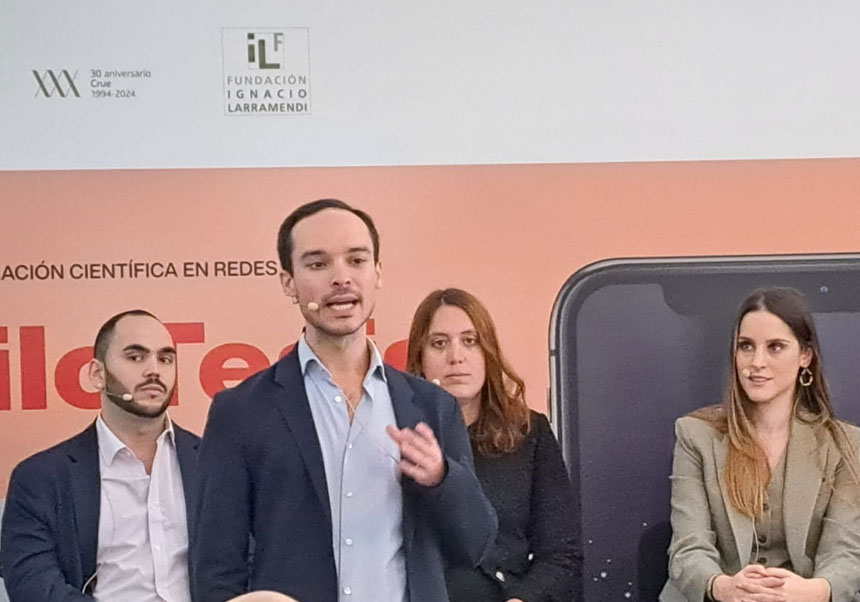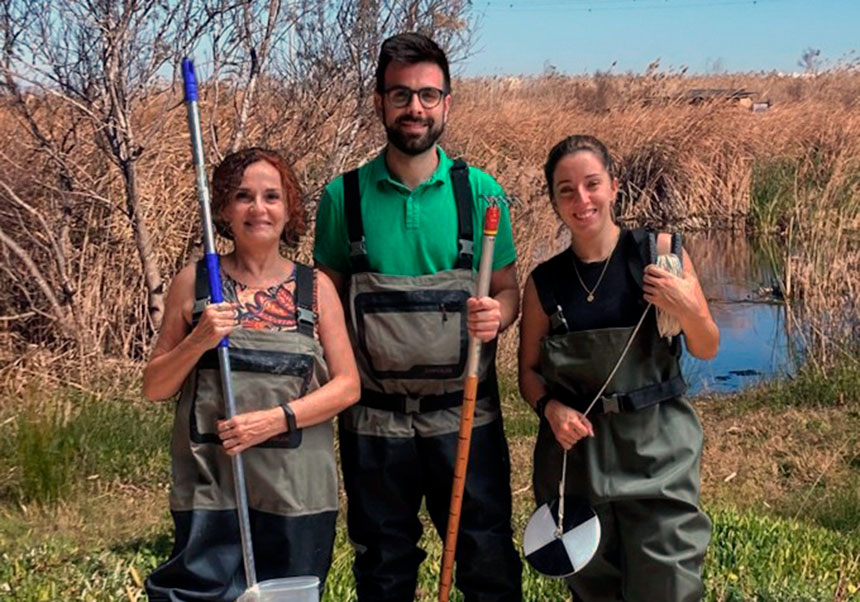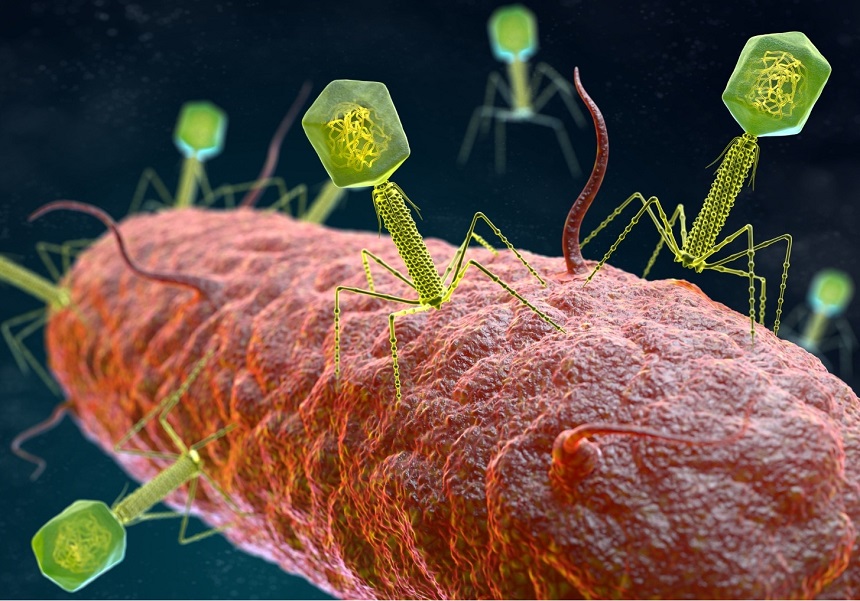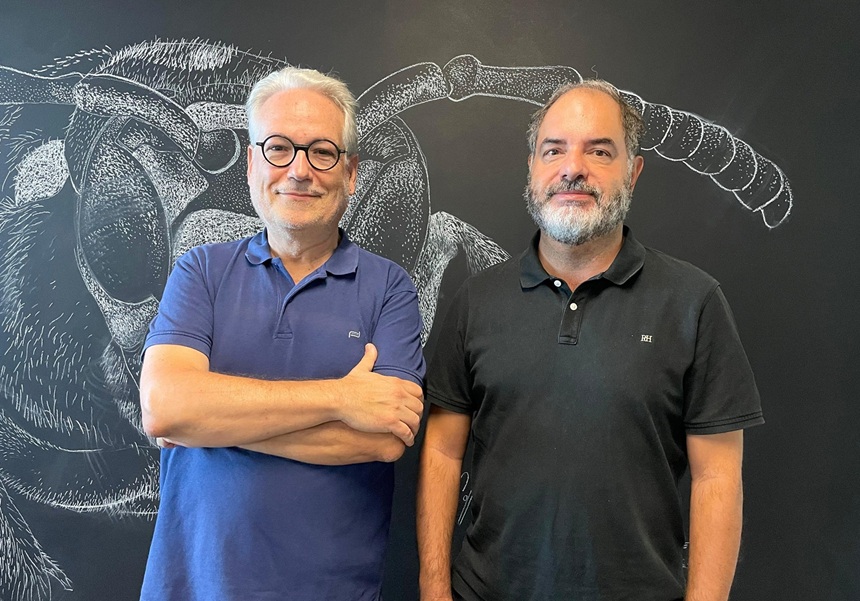Adolfo Rodríguez Eguren, PhD in Biomedicine and Biotechnology, winner of the #HiloTesis science popularisation contest
- Scientific Culture and Innovation Unit
- October 28th, 2024

Adolfo Rodríguez Eguren, holder of a PhD in Biomedicine and Biotechnology from the University of Valencia, has been one of the six winners in the fourth edition of #HiloTesis, a contest of science popularisationin social networks organised by the Conference of Spanish University Rectors (CRUE) and the Red Divulga network. His award-winning work focuses on how regenerative medicine can help address infertility issues in women. The awards ceremony, funded by the Larramendi Foundation, took place on Monday 28 October at the Círculo de Bellas Artes in Madrid.
Adolfo Rodríguez (@AdolfoEgu on the social network X) remarked at the award ceremony: “This contest has awakened my passion for science popularisation. During my doctoral research, I felt a pang of regret for not engaging in science popularisation, and I was looking for an opportunity to share my work”. His thesis thread explains how regenerative medicine —a branch of medicine that uses the body itself and its components— can treat uterine infertility (which prevents an embryo from successfully implanting in the uterus and, therefore, prevents the woman from becoming pregnant). Specifically, his study focused on testing platelet-rich plasma or regenerative factors immersed in hydrogel –a bioengineering platform derived from a pig's uterus– to regenerate another uterus in preclinical models and patients.
The six finalists each received a prize of €500 and a certificate. The awards were presented by the executive secretary of CRUE-I+D+i and vice-rector for Research at the University of Castilla-La Mancha, Ángela González, and by the vice-president of the Ignacio Larramendi Foundation, Carmen Hernando Larramendi. The director of the Círculo de Bellas Artes, Valerio Rocco, and the coordinator of #HiloTesis and member of the Red Divulga, Alberto Nájera, also took part in the event.
This year’s #HiloTesis contest saw 362 participants from 49 Spanish universities. Between 1 and 15 June, contestants shared their research via X (formerly Twitter), Instagram, Threads and Mastodon. The aim was to bring university research closer to the public. Most participants used X to present their research in 20-post threads, employing simple language alongside photos, videos and GIFs. Thirty evaluators from university Science Culture units and doctoral schools participated in the selection process.
Sara López Vázquez, from the University of Valladolid, won this award for her #HiloTesis on neuroprotective agents that can preserve memories affected by Alzheimer’s; Mario Sergio Pino Hurtado, from the University of La Rioja (UR), for his thesis on antibiotic resistance caused by misuse; Leyre de Cepeda, from the Rey Juan Carlos University (URJC), for her thesis on the instrumentalisation of feminist claims through influencers promoting firearms in the United States; Cristina Campos Herrero, from the University of Cantabria, for her work on how to assess the environmental impact of the tourism sector; and María Paola Ayala Godoy, from the Autonomous University of Barcelona (UAB), for her research on migration processes and their effects on both origin and destination regions.
The jury also awarded special mentions to six other doctoral theses, recognising the work ofFrancisco Javier Blanco (University of Extremadura); David Salesa Duro (University of Alicante); María Arenas Moreira (University of Castilla-La Mancha); Maria Teresa Perelló Trias (University of the Balearic Islands); Rocío Collado Soler (University of Almería), and Rubén Barroso Martínez (University of La Laguna).
Categories: Recerca, innovació i transferència , Facultat de Ciències Biològiques , Col·laboració amb empresa , Internacionalització recerca , Difusió i comunicació científica , Investigació a la UV , Estudis
















